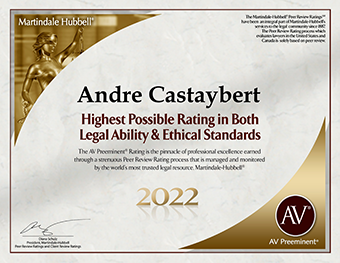Is There a Law that Regulates Cybersquatting?
Congress enacted the Anti-Cybersquatting Consumer Protection Act which prohibits certain types of cybersquatting. The statute amended the Lanham Act to make it a type of trademark
infringement if a domain name containing a distinctive or famous trademark is registered in bad faith.
The Act provides certain benefits not previously available to trademark owners:
- Beyond the damages which are conventionally available in a trademark infringement action, the Act gives trademark owners the opportunity to elect to recover statutory damages between $1000 and $100,000 per domain name.
- When a trademark owner cannot obtain in personam jurisdiction over a domain name registrant, either because the person used an alias in registering the domain name or is outside the jurisdiction of the United States courts, the trademark owner may file a civil in rem action against the domain name. In these civil in rem actions, the relief is limited to transfer of the domain name to the trademark owner, cancellation or forfeiture.









